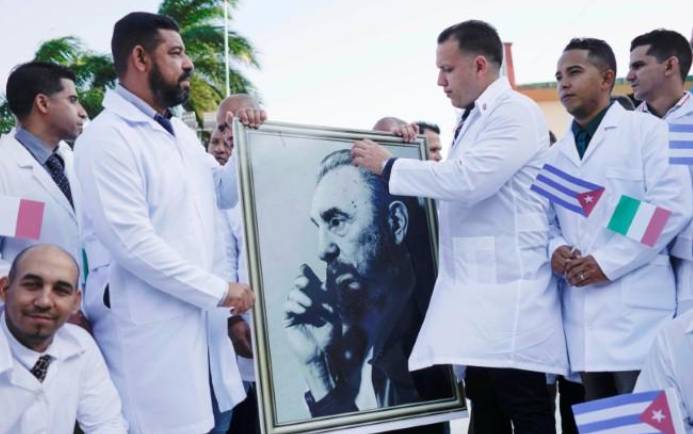×
The Standard e-Paper
Smart Minds Choose Us

Cuban doctors hold an image of late Cuban President Fidel Castro during a farewell ceremony before departing to Italy to assist, amid concerns about the spread of the coronavirus disease (COVID-19) outbreak, in Havana, Cuba, March 21, 2020. REUTERS/Alexandre Meneghini
Communist-run Cuba said it dispatched a brigade of doctors and nurses to Italy for the first time this weekend to help in the fight against the novel coronavirus at the request of the worst-affected region Lombardy.